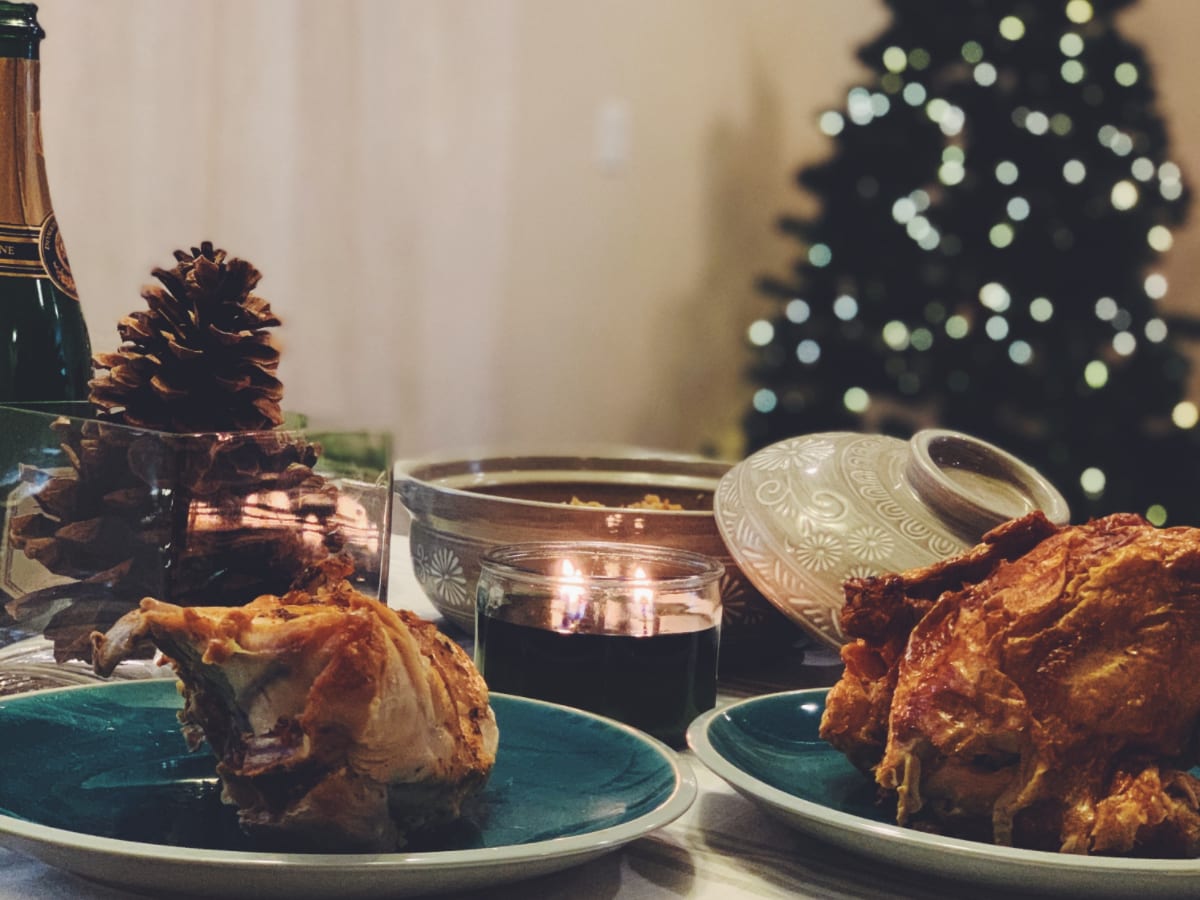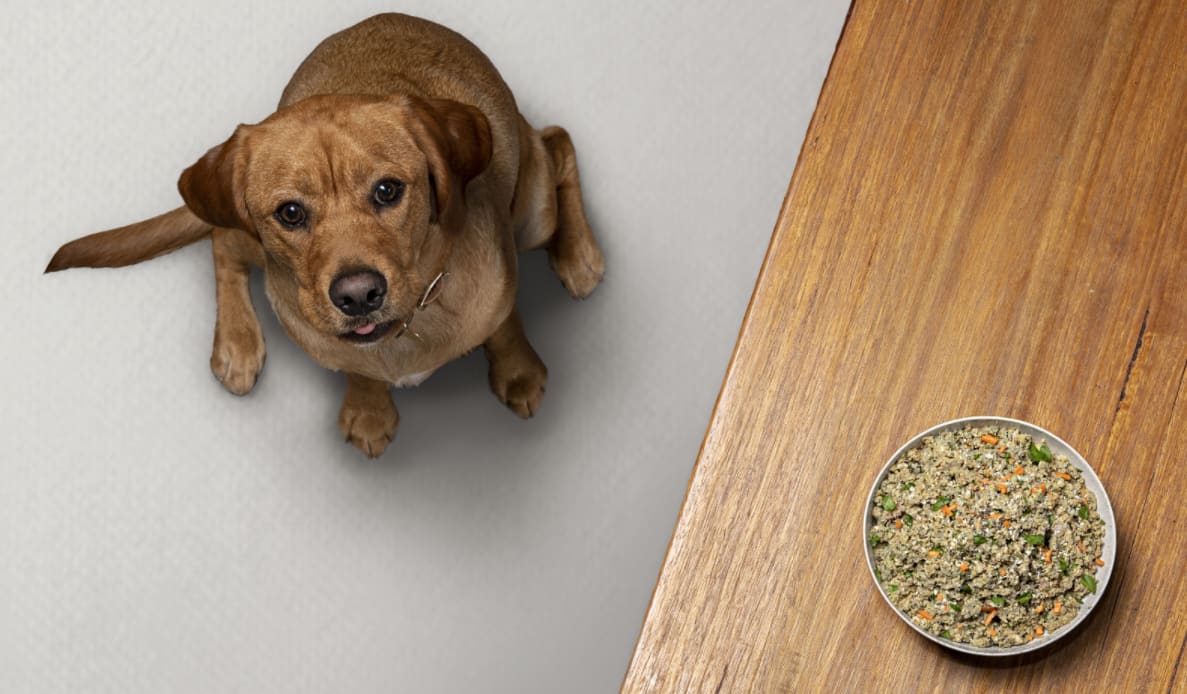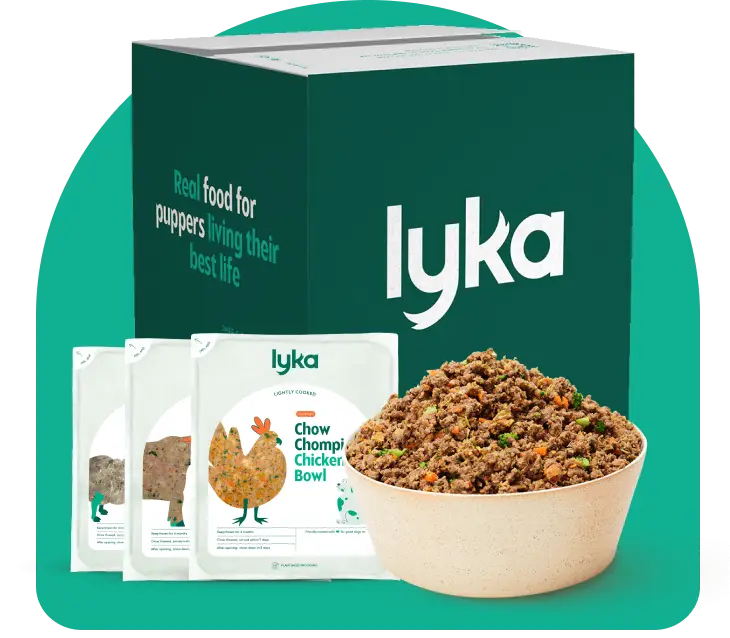Pancreatitis in dogs: beware of Boxing Day Disease!

By Anna Podolsky

As we approach Christmas, we are surrounded by goodies that make us feel like we’ve had way too much to eat. It may be tempting to share some of that foodie love with pupper during this festive season, especially when they’re under the table during Christmas lunch, staring at you with those puppy eyes.
But did you know that over-indulging pupper with our Christmas foods can trigger them to develop pancreatitis? And that vets typically see a spike in pancreatitis in dogs, around the Christmas holidays period?
We’re here to give you a run-down on what we call Boxing Day Disease – the risk of pancreatitis in dogs, after that jolly Christmas lunch.

Not all Christmas leftovers will have pupper’s tummy feeling festive…
A dog’s pancreas is the organ for regulating insulin. Its role is to release insulin and other digestive enzymes to regulate blood sugar levels in pupper’s body. Most dogs who eat a commercial diet already have a pancreas that’s extremely hard at work.
This is because the typical commercial dog food, such as kibble, is rich in high–glycemic index (G.I) carbohydrates, which may put the pancreas under chronic stress, as it is forced to consistently produce large amounts of insulin to balance the high glucose levels in the food.
And what is the perfect trigger for an already over-worked pancreas? High amounts of fats, usually saturated fats.
Although most human wholefoods are extremely nutritious for pupper, Christmas leftovers tend to be particularly high in saturated fat. Crispy fried bacon and buttered meat loaf, we’re looking at you. If we share these high-fat Christmas foods with pupper, their pancreas will be forced to work extremely hard to break down the fats, enough to tip a chronically-stressed pancreas over the edge and cause an acute pancreatitis in dogs.

Pupper deserves to feast on the good stuff
Not all fats are bad for the pancreas, and in fact, the right types of fats are beneficial for pupper, as long they are fed in moderation and built up gradually over time. A study done by Dr. Greg Olgivie revealed that diets moderately high in protein, higher in fats and lower in carbohydrates appear to not have the same risk factors for pancreatitis as diets that are high in carbohydrates, fat and protein. Dr. Olgivie also found that high amounts of Omega 3 fats were even successful in pro-longing dog patient life. This is why higher fat diets, such as Lyka, that are packed with polyunsaturated Omega 3 good fats can be anti-inflammatory to the pancreas, as long as they are correctly balanced.
Christmas foods that will have the little elves in pupper’s tummy dancing!
Here at Lyka we truly believe that puppers will always be part of the family and that means they deserve to feast with us during Christmas. We have curated a list of Christmas foods for pupper: some not-so good foods to avoid, and healthier options to opt for instead.
Foods to avoid:
Sugars:
Christmas Pudding
White Christmas
Pavlova
Custard
High glycemic index carbohydrates:
White mashed or roasted potatoes
Gingerbread cookies
Minced pie
Trans-fats:
Christmas Ham
Glazed BBQ meats
Foods to opt for:
Dishes that contain fruit and vegetables (in moderation)
Fruit salads, without sweet dressings
Lightly cooked vegetables, without salt
Dishes that contain lean cuts of meat and/or seafood
Lightly cooked ground beef or chicken
Steamed fish
A fresh bowl of Lyka!

Encouraging pupper’s tummy to jingle all the way!
Celebrate a happy and healthier tummy for pupper during this Christmas holiday. You can find out more about the ingredients in each individual bowl that will keep pupper’s tummy jingling all the way on our website at lyka.com.au!
If your dog has had a history of pancreatitis it may be worth considering a diet change (under veterinary supervision) in the new year, follow us on social media, subscribe to our newsletter for animal health inspiration or just give us a buzz for help.





